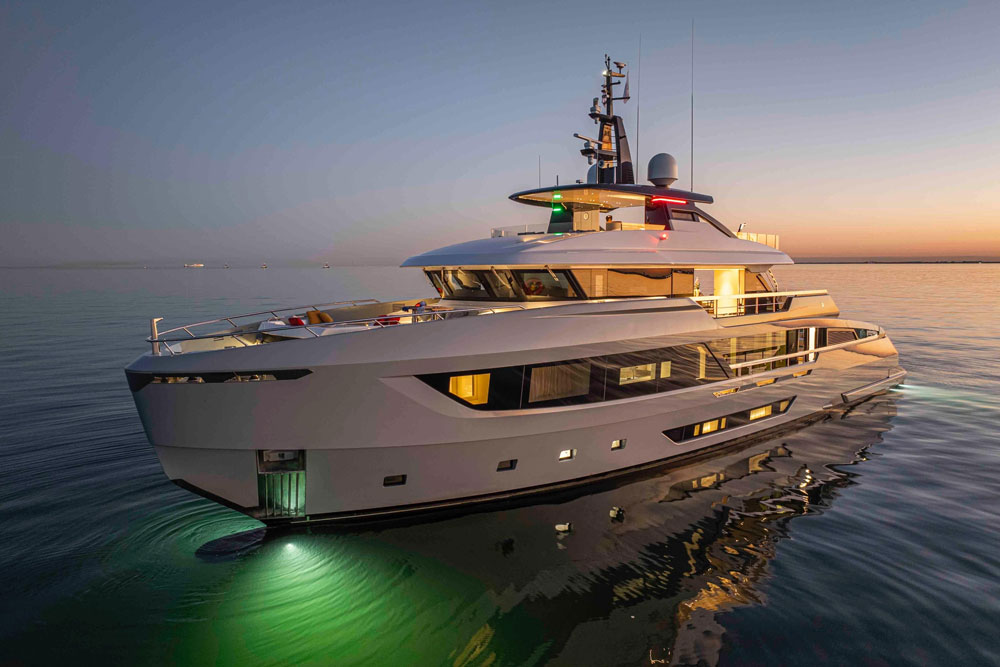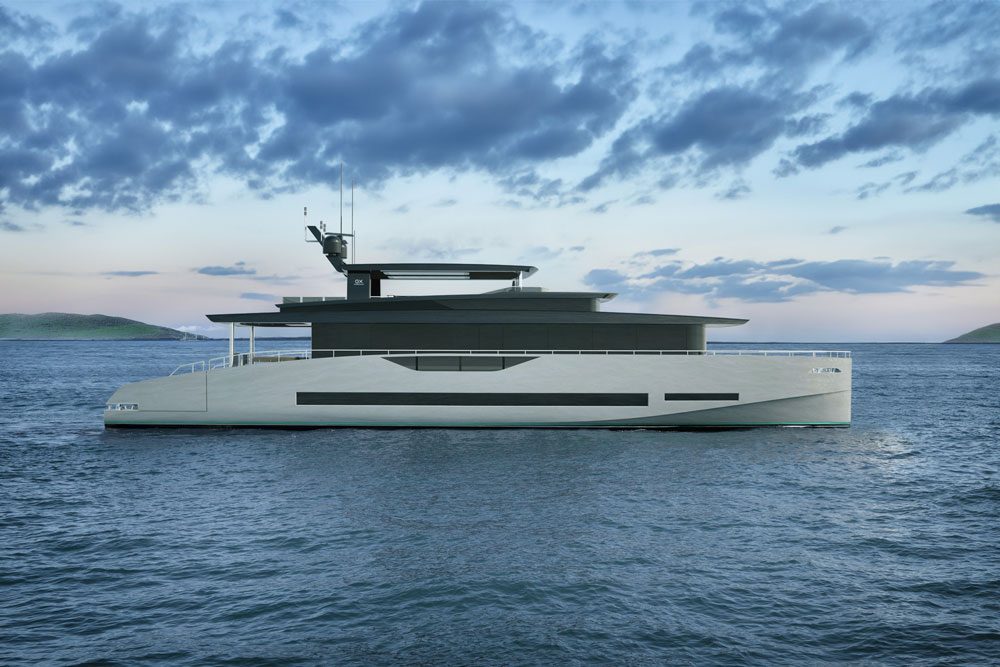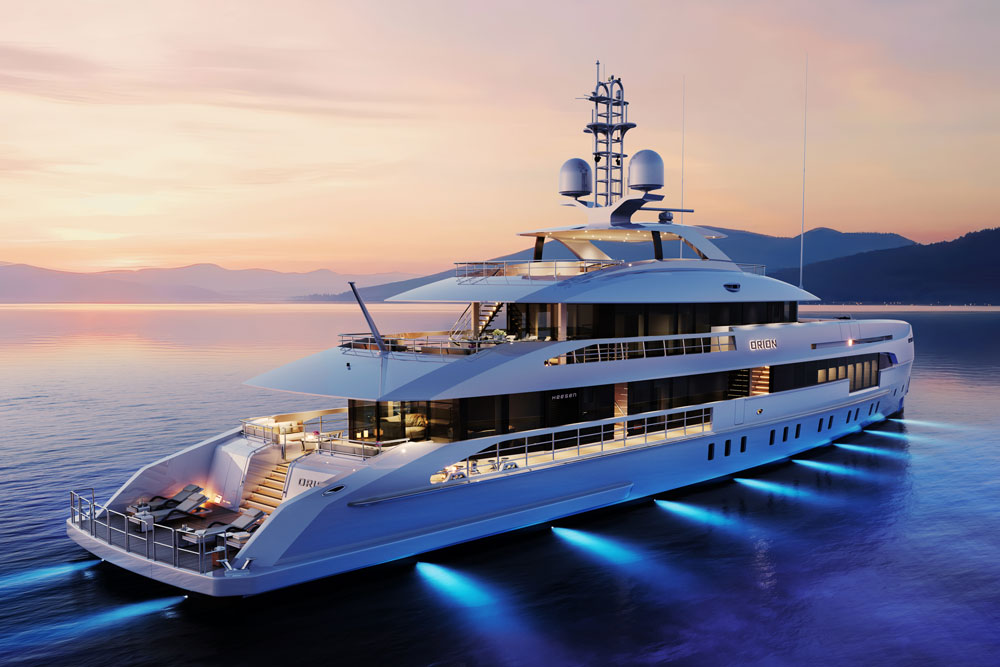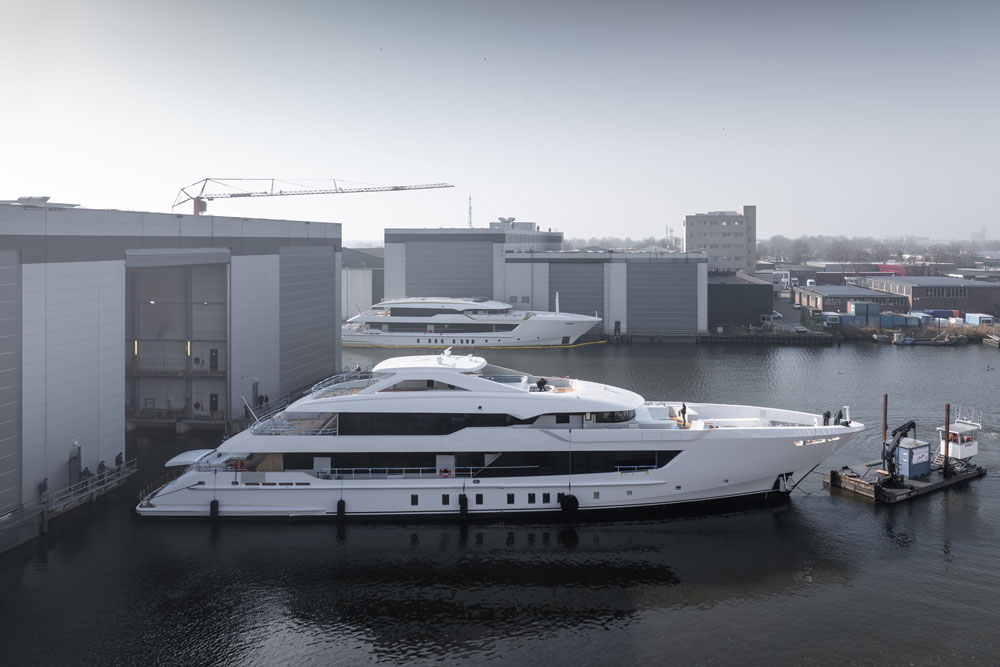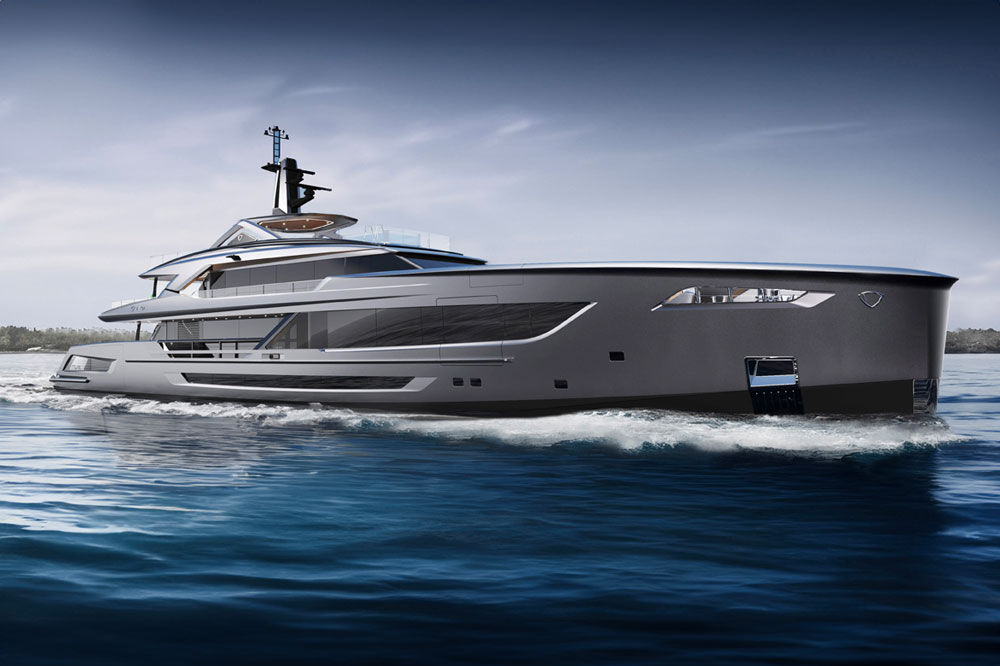Rolls-Royce and Lürssen are focusing on methanol. As the two companies announced at the Monaco Yacht Show, concrete projects such as the propulsion of a Lürssen yacht with mtu methanol engines are already under development.
Yachts with a length of approx. 75 m or more, to which the joint project refers, offer great potential for propulsion with methanol – ideally with “green” methanol, they say. Furthermore, a methanol engine emits significantly fewer particles than a comparable diesel engine and does not require SCR exhaust gas aftertreatment.
Daniel Chatterjee, Director of Sustainability, Technology Management and Regulatory Affairs at Rolls-Royce’s Power Systems division, and Peter Lürßen, shareholder and CEO of Lürssen, discussed the opportunities and challenges of this project during the Monaco Yacht Show. “Methanol is currently ahead in the discussion about alternatives to fossil diesel,” says Chatterjee, who is intensively involved in numerous committees on the issue of the fuel of the future. “There are challenges with storage and use because methanol is highly flammable. But the fuel is liquid at normal ambient temperatures and so these challenges are safely manageable, similar to other fuels,” Chatterjee continues.
Methanol with 2.4 times more volume
The main difference, and therefore a challenge for naval architects and shipbuilding engineers, is that methanol has around 2.4 times the volume of diesel with the same calorific value, so the tanks have to be correspondingly larger. “Our customers want to use as little space as possible in their ship’s hull for propulsion and fuel storage. Although methanol has disadvantages here compared to diesel, it has clear advantages over other alternatives to fossil fuels. We are now seeing that today’s prospective buyers for future yachts are increasingly thinking about how they can make the operation of their ship as climate and environmentally friendly as possible,” says Peter Lürßen. “We are therefore registering a growing willingness among future customers to invest in new technology for climate protection and to make space available for this in the ship.”
Rolls-Royce is currently developing a methanol engine based on the successful mtu Series 4000. In contrast to diesel engines, whose fuel ignites itself under high pressure, methanol, with its lower flash point, is ignited externally by a spark plug, similar to a gasoline engine.



